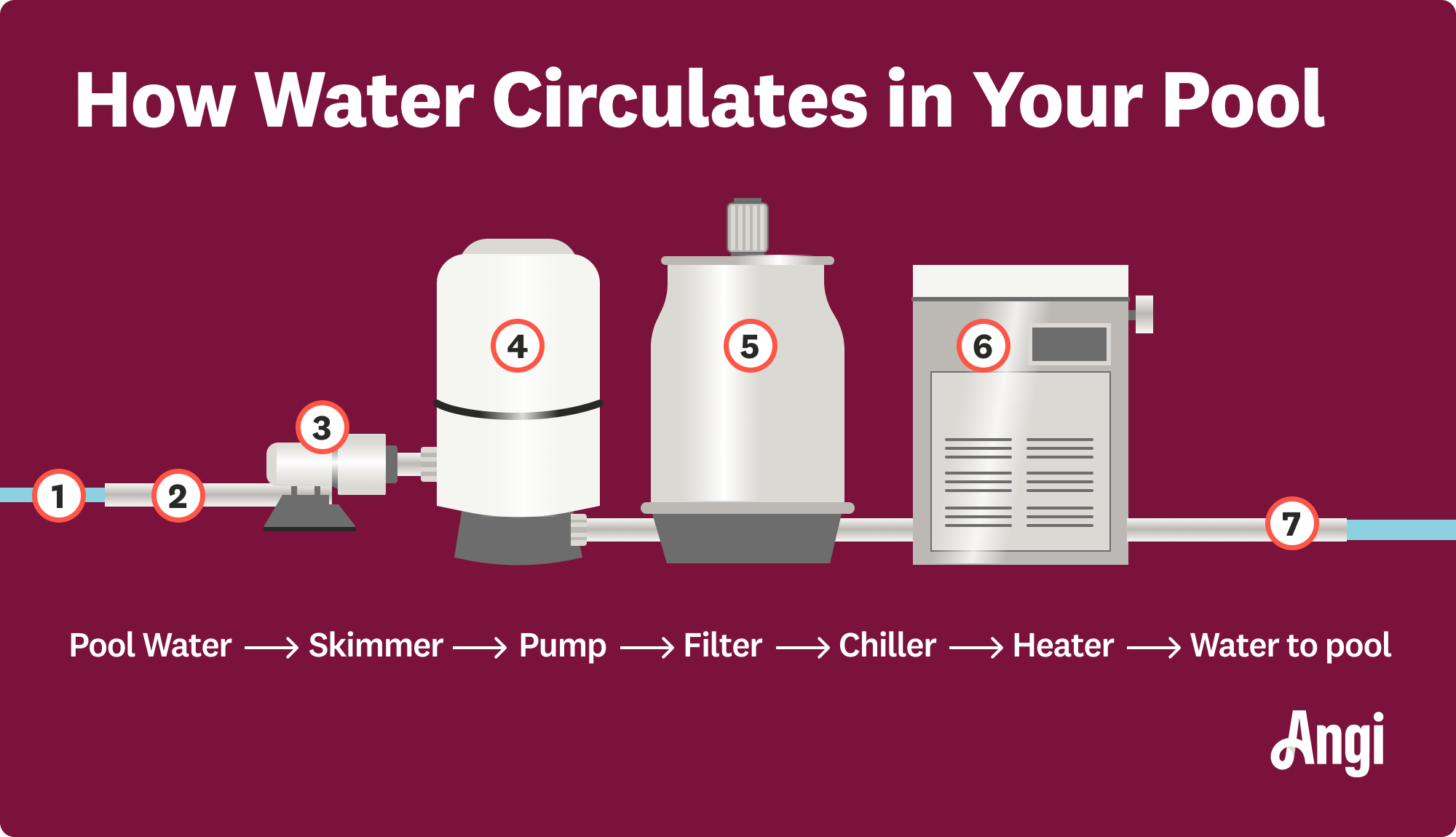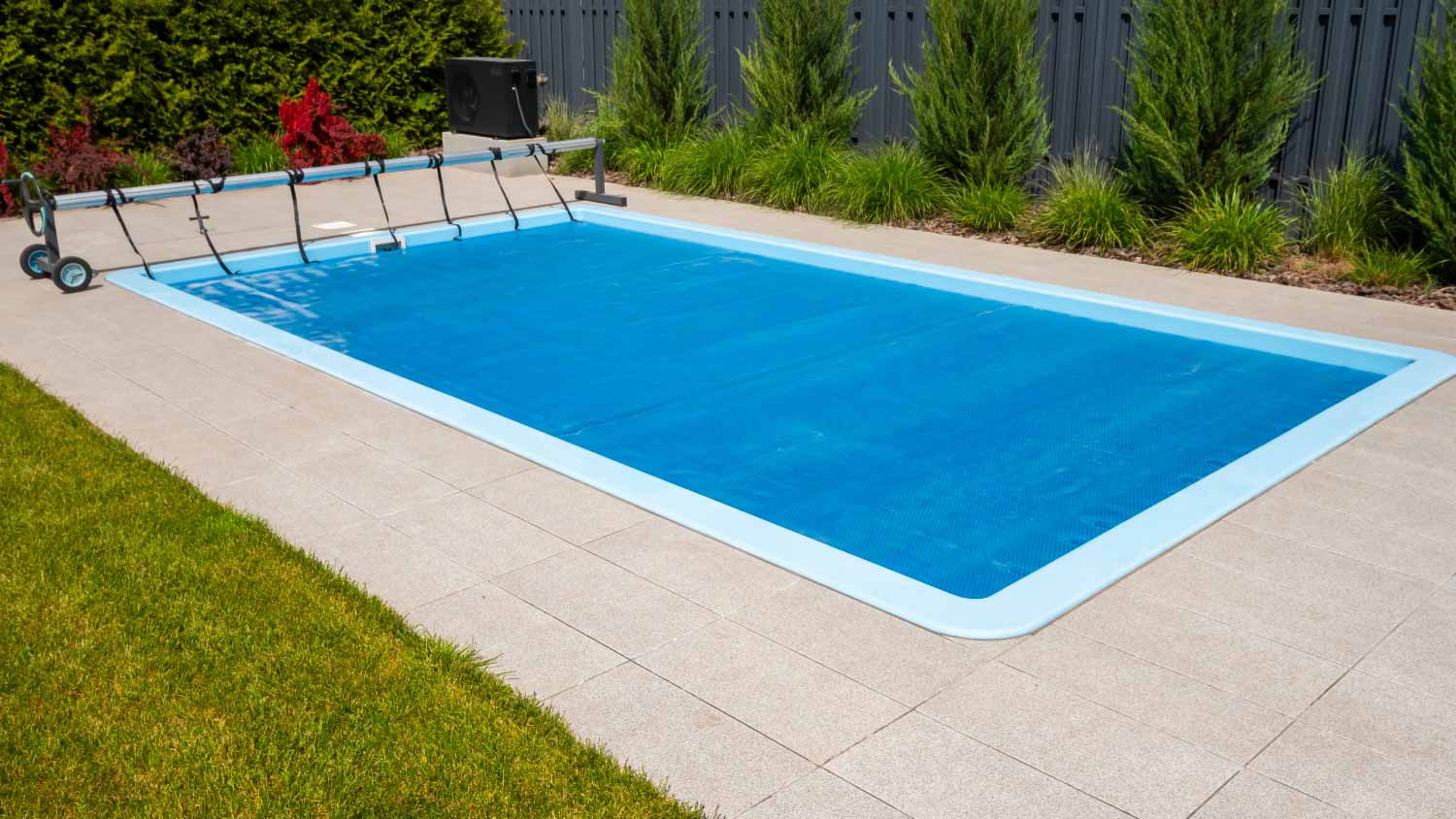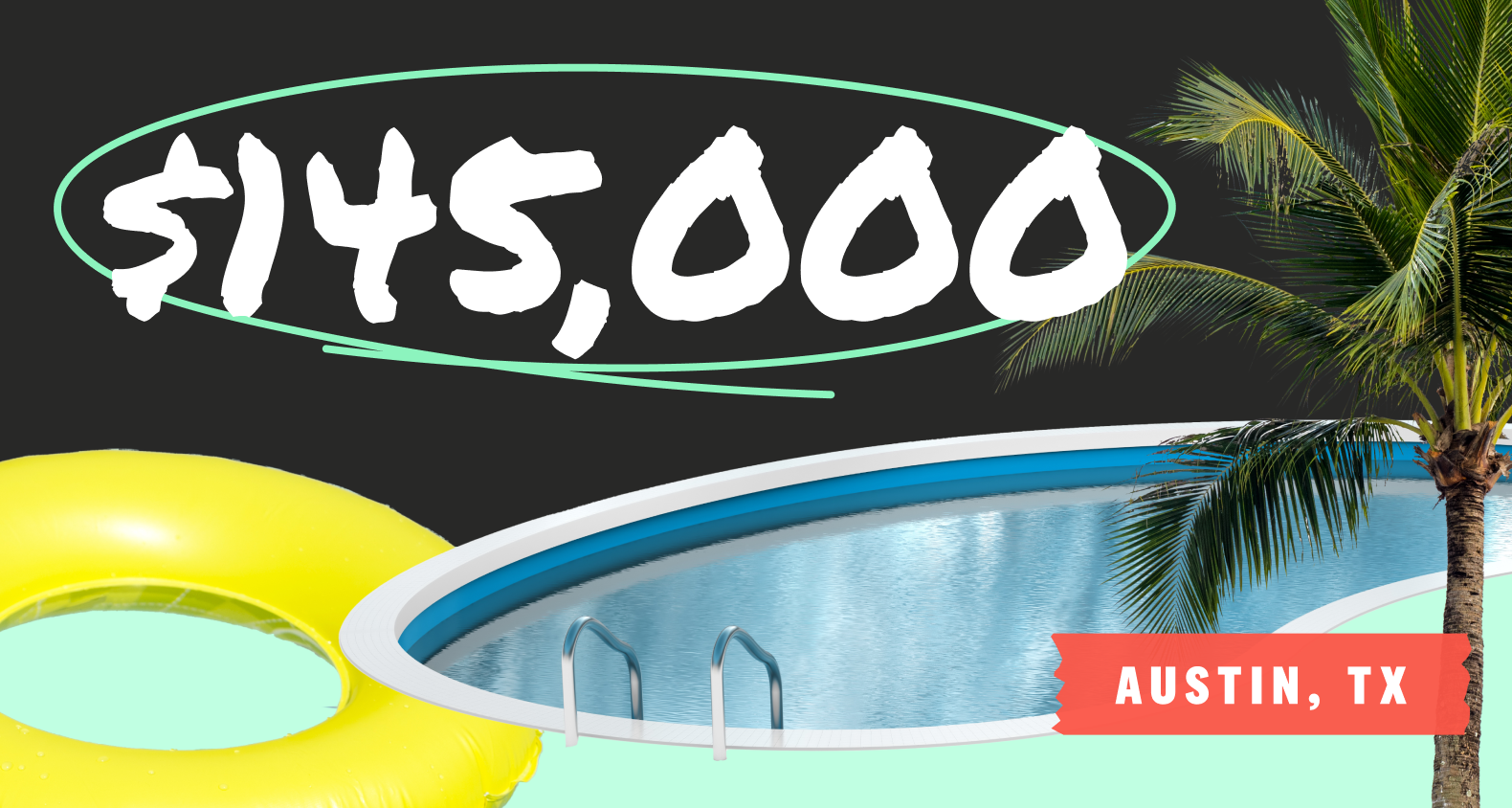How Much Does a Pool Chiller Cost? [2025 Data]
Pool chillers cost $2,000 to $6,500 for most homeowners, with an average price of $4,250. A pool contractor can help you choose the right size.


Pool chillers cost $4,250 on average, but you could spend as little as $1,500 on a basic evaporative chiller or as much as $9,500 on a high-end hybrid chiller. It all depends on the size, type, brand, and efficiency.
There’s nothing like jumping into a refreshing pool on a hot day, but in especially warm weather, your pool may feel closer to a bath than a cold shower. A pool chiller, or pool cooler, cools down the water by about 10 to 15 degrees Fahrenheit. This guide breaks down the costs of cooling down your pool.
Pool Chiller Cost Factors
There are two major costs associated with pool chiller installation: the cost of the pool chiller and the cost of labor. Here are some cost factors to consider.

Type
There are three different types of pool chillers. Evaporative chillers are the most affordable but can be less effective than mechanical pool chillers. Meanwhile, hybrid chillers are the most costly but offer heating as well as cooling.
| Type of Pool Chiller | Cost Range (Chiller Only) |
|---|---|
| Evaporative | $1,000–$3,000 |
| Mechanical | $1,500–$6,000 |
| Hybrid | $2,000–$8,000 |
Evaporative Pool Chillers: Evaporative pool chillers cost $1,000–$3,000. They use a pump to pressurize water into a mist, then a fan to blow the mist over the pool's surface. The mist evaporates, absorbing the heat from the pool's surface in the process.
Mechanical Pool Chillers: Mechanical pool chillers cost $1,500–$6,000. They use refrigerant to cool water. These coolers are like air conditioning for your pool and work better than evaporative coolers in humid climates.
Hybrid Pool Chillers: Hybrid pool chillers cost $2,000–$8,000. They’re a combination of a chiller and a heat pump and can heat and cool your pool.
Pool Size
You’ll need to choose a pool chiller with the capacity to cool the volume of water in your pool. The larger your pool, the more the chiller will cost. The average residential pool holds 10,000 to 20,000 gallons of water, but commercial pools or large residential pools may hold more.
| Pool Size | Gallons | Average Cost Range |
|---|---|---|
| Small | Up to 15,000 | $1,000–$3,000 |
| Medium | 15,000–30,000 | $2,000–$4,000 |
| Large | More than 30,000 | $4,000–$8,000 |
Manufacturer
There are various brands of pool chillers. A higher-end brand will cost more, though some manufacturers offer seasonal sales. The leading brands include Glacier Pool Coolers (which are among the most affordable) and AquaCal (which offer a range of chillers and hybrid chillers). You’ll also find GulfStream, FibroPool, and Raypak topping best of lists.
Labor
If you hire a pool contractor to install your pool chiller, you can expect to spend $500 to $1,500 on labor. Most pool contractors charge $50 to $150 per hour. The more complicated the installation, the more time it will take and the more it will cost.
| Labor for Pool Chiller Installation | Average Cost Range |
|---|---|
| Flat rate | $500–$1,500 |
| Hourly rate | $50 to $150 |
Pool Chiller Ongoing Costs
The cost of a pool chiller includes the installation and the chiller unit itself, as well as a couple of ongoing costs to consider.
Electricity
Similar to a pool heater, a pool chiller runs on electricity. Running your new pool chiller will raise your electric bill. For most homeowners, the added electricity cost per month for a pool is somewhere between $10 and $300. The amount depends on the following factors:
Desired Temperature: The optimal temperature for a recreational swimming pool is between 78–86 degrees. The more you need to lower the temperature, the more it will cost to run the cooler.
Pool Size: It takes more energy to cool a larger pool with a higher volume of water.
Location: If you live in a hot and sunny climate, your pool may warm up quickly. As a result, your pool chiller will need to use more energy to maintain the optimal temperature.
Efficiency: High-end chillers may cost more up front, but they’re more energy efficient and could cost less than $1 per day to run. Look for a model with a high Coefficient of Performance (COP) rating.
Maintenance
If you hire a pro for swimming pool maintenance, you’ll spend around $100 to $300 per year maintaining your pool chiller (on top of regular pool maintenance costs). On the plus side, chillers can help prevent algae growth and save you on the cost of additional pool chemicals. Most chillers last 10 to 20 years before you’ll need a replacement.
DIY Pool Chiller vs. Hiring a Pro

If you want to save on the cost of a pool chiller, there are some relatively straightforward DIY options. The most common are fountains that you hook into your jets or existing pumps. They cool using evaporation, but they’re not as effective as the type of pool chillers that require professional installation.
In a climate that doesn’t get too warm, a DIY pool chiller may work well alongside other measures, like shading or covering your pool and running the filter at night. If you live in a hot climate and need to reduce your pool temperature by more than a few degrees, it’s a good idea to hire a local pool contractor to install a more effective chiller that allows you greater temperature control.
Ways to Save Money on a Pool Chiller
If you’re budgeting for the cost of installing a pool, you may be looking to cut your spending anywhere possible. In truth, a pool chiller is only necessary in really warm climates. Nonetheless, if you really want to keep your pool water at an optimal temperature, there are a few things you can do to cut down on the cost of a pool chiller:
Size Matters: Choose the smallest size chiller that can effectively cool your pool. The best option depends on the size of your pool and the volume of water you need to cool.
Choose an Evaporative Chiller: Evaporative chillers are more affordable than other types. Some evaporative chillers are relatively simple to install DIY if you’re a handy homeowner.
Two for One Can Save You Cash: If you don’t already have pool heating and would like to install it in the future, opt for a hybrid chiller to get the biggest bang for your buck.
Look for Sales: Pool chillers often go on sale during the fall and winter, when people are less likely to take on pool-related projects.
Balance Brand and Efficiency: Instead of opting for the lowest-cost chiller, look at which models will provide the most value over time. A mid-range model from a reliable brand will likely have a longer lifespan and require fewer repairs than lower-cost options. Your pool contractor can recommend the right brand for your goals.
DIY Maintenance: Saving money on a chiller isn’t just about up-front costs. You can save on the cost of maintaining your pool by doing some of the work DIY. Clean your pool and balance the chemicals on your own, but tap in a pro when you need repairs.
How Angi Gets Its Cost Data
Home is the most important place on earth, which is why Angi has helped more than 150 million homeowners transform their houses into homes they adore. To help homeowners with their next project, Angi provides readers with the most accurate cost data and upholds strict editorial standards. We extensively research project costs to develop the pricing data you see, so you can make the best decisions for you and your home. We rely on reputable sources, including the U.S. Bureau of Labor Statistics, academic journals, market studies, and interviews with industry experts—all to ensure our prices reflect real-world projects.
Want to help us improve our cost data? Send us a recent project quote to costquotes@angi.com. Quotes and personal information will not be shared publicly.
Frequently Asked Questions
Installing a pool chiller can give you more control over the temperature of your pool, especially if you live in a climate with hot summers. Just a few degrees of cooling can make your swim feel more refreshing and allow you to use fewer pool chemicals by slowing down the growth of algae. You might not need a pool chiller if you live in a climate in which temperatures tend to dip at night.
A pool chiller will take anywhere from 12 to 14 hours to lower your pool's temperature by 1 to 15 degrees. Most people tend to run their coolers overnight, but larger pools in warm climates take longer to cool. Choosing a chiller with the right capacity can help speed up the process.
There are several affordable ways to chill your pool. A pool cover can help prevent the temperature of your pool from rising during the sun. You can also run your filter at night to help aerate the water. The next most wallet-friendly option is a DIY pool chiller or fountain that uses evaporation to cool your pool.





- Swimming Pool Installation
- Pool Liner Replace & Install Companies
- Above Ground Pool Contractors
- Pool Remodeling Companies
- Inground Pool Companies
- Pool Removal Companies
- Inground Pool Repair Companies
- Sauna Companies
- Hot Tub Companies
- Sauna Repair
- Fiberglass Pools
- Pool Designers
- Pool Pump Repair
- Pool Closing Services
- Solar Pool Heater Installers










